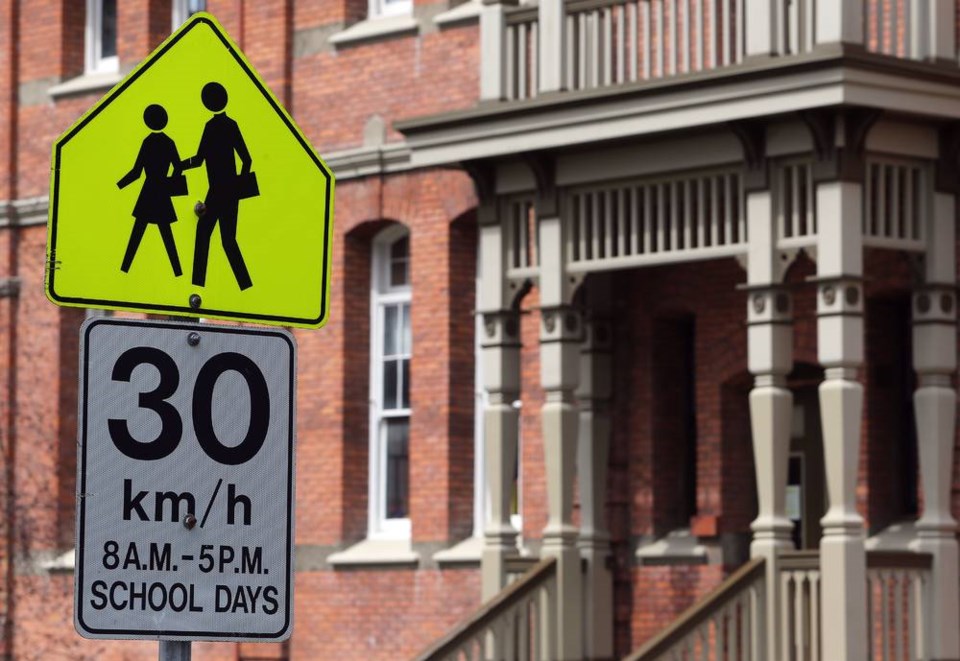In a surprising development, a group of 34 public school principals and vice-principals have asked the Labour Relations Board to let them form a union.
The group are all members of the Southeast Kootenay Principals‚Äô and Vice-Principals‚Äô Association. They claim the right to unionize based on a 2007 Supreme Court of saπ˙º ¥´√Ω ruling that made collective bargaining a Charter-protected activity.
Legally speaking, this looks a dubious line of argument. The court did not rule that everyone has the right to unionize. It ruled that “workers” who bargain collectively are entitled to expect that their employer will negotiate in good faith.
That decision followed a complaint by health-sector unions in saπ˙º ¥´√Ω that the provincial government had abridged their rights by legislating away certain workplace provisions that should have been subject to negotiation.
While this case is almost certainly headed for further litigation, it would be precedent-setting to allow principals and vice-principals to unionize. For the key to the matter is that these top-level executives aren’t “workers”; they’re managers.
And traditionally managers are expected to take a broader view of their responsibilities, placing the good of their organization above personal interests.
Given the troubled history of labour relations in the saπ˙º ¥´√Ω school system ‚Äî numerous strikes, walkouts, lawsuits and general tension ‚Äî a balancing presence is needed. Principals and vice-principals must play that role. By claiming the right to unionize, they signal that they are more interested in contending with their employers than representing them.
One of the supporting complaints raised by the Southeast Kootenay group is that the salaries of their members vary widely, and indiscriminately, across the school district.
There is limited evidence for this claim. There are 15 principals in the district and they earn, on average, $120,000 per year. The most highly paid gets $131,000, while the lowest paid takes home $108,000. This is well within the range explainable by differing levels of seniority and school size.
There are, likewise, 15 vice-principals who make, on average, $105,000. With one exception, which might be due to a mid-year appointment, the top earner is paid $114,000 and the bottom earner $98,000.
Again, this is the kind of variance to be expected among managers with differing levels of seniority and scope.
Moreover, these salary scales are roughly comparable with those in districts with much larger schools, and higher living costs. Principals in Saanich average $130,000, while vice-principals average $112,000.
A little higher perhaps, but then the Saanich school district has 8,000 pupils. South Kootenay has 5,700 — quite a bit less.
And this is the root of the matter. Salaries for principals and vice-principals are set by a model which their own provincial association had input to and agreed with.
This in itself ensures there is comparability and fairness in the way compensation is decided.
The model lays down identical maximum and minimum compensation levels for every school district in the province, with specific bands for primary school, middle school and high school principals and vice-principals.
Understandably, managers in high schools get more than primary school administrators, since their scope is wider.
This is why salaries in Saanich are slightly higher than in South Kootenay: The schools are larger.
When so many sectors of the public service are under pressure, it is disappointing to see a group of school administrators demanding special treatment.
No more is being asked of them than is asked of staff in hospitals, child-care services, law enforcement or municipal government.
There is also the reality that saπ˙º ¥´√Ω‚Äôs private sector is still struggling with the impact of the coronavirus outbreak. Thousands of businesses have gone under, and many owners have lost their life savings.
Is this really the time for school administrators making six-figure incomes, and assured of career-long employment and a generous pension, to strike such a tone-deaf note?
In difficult times we need to pull together, not draw apart.



